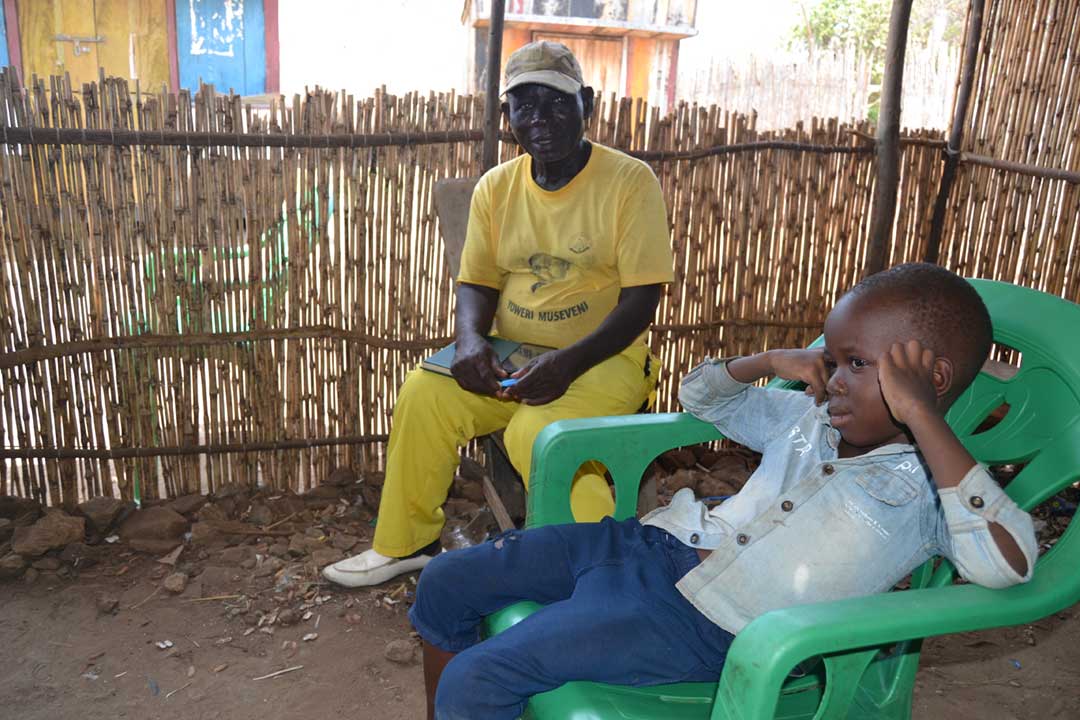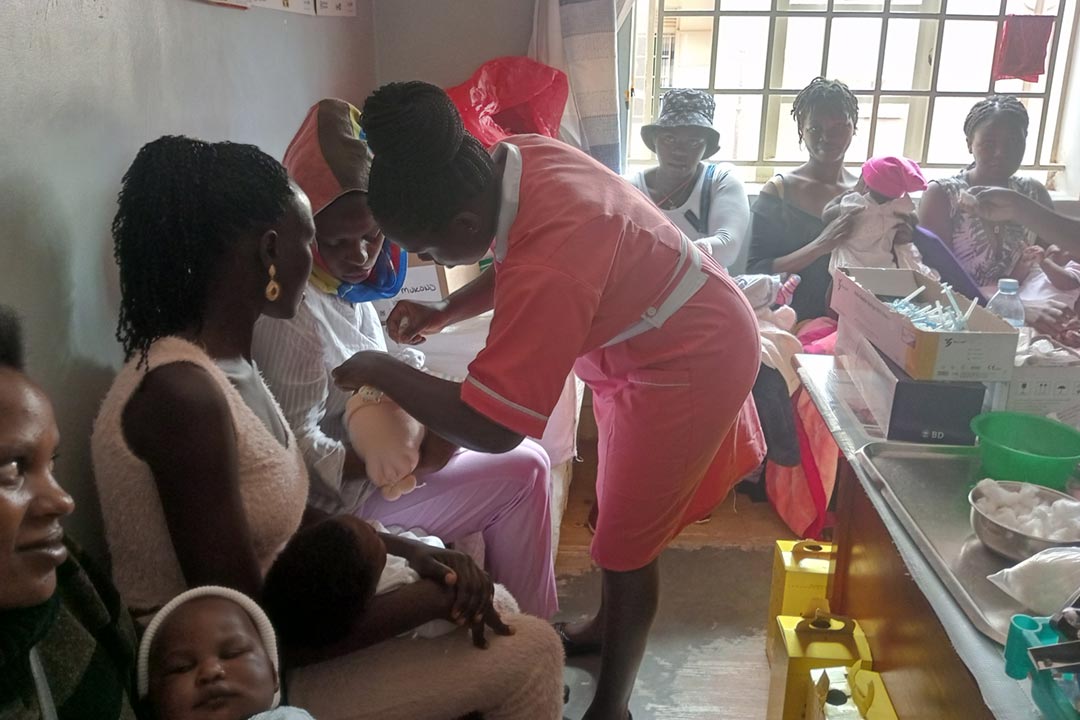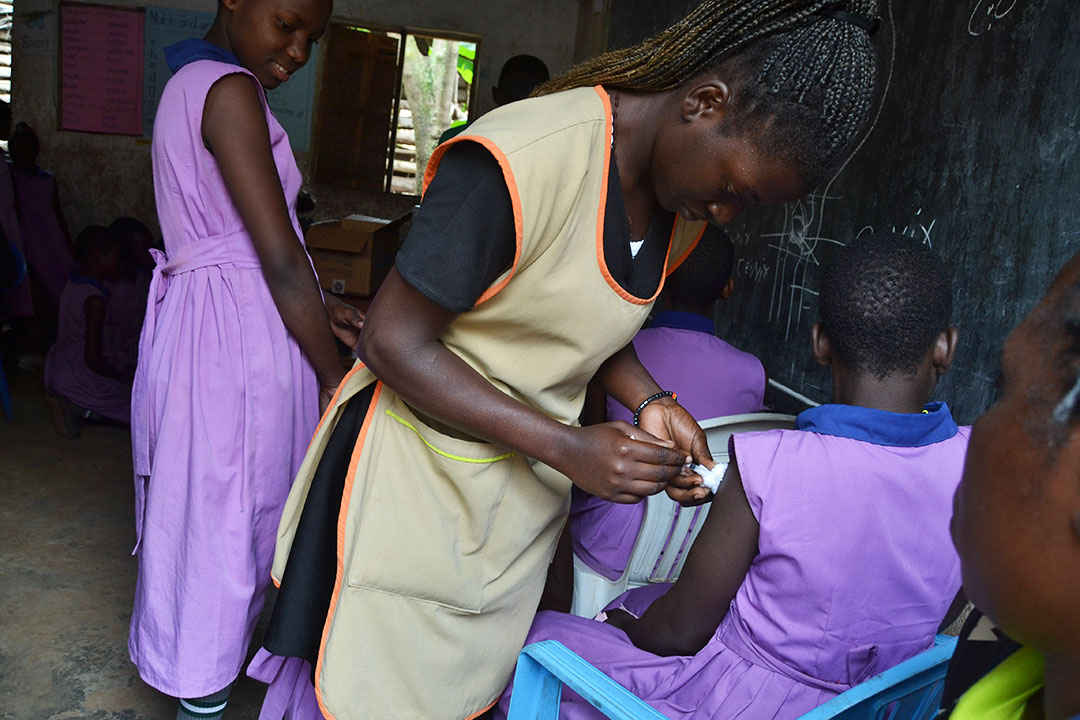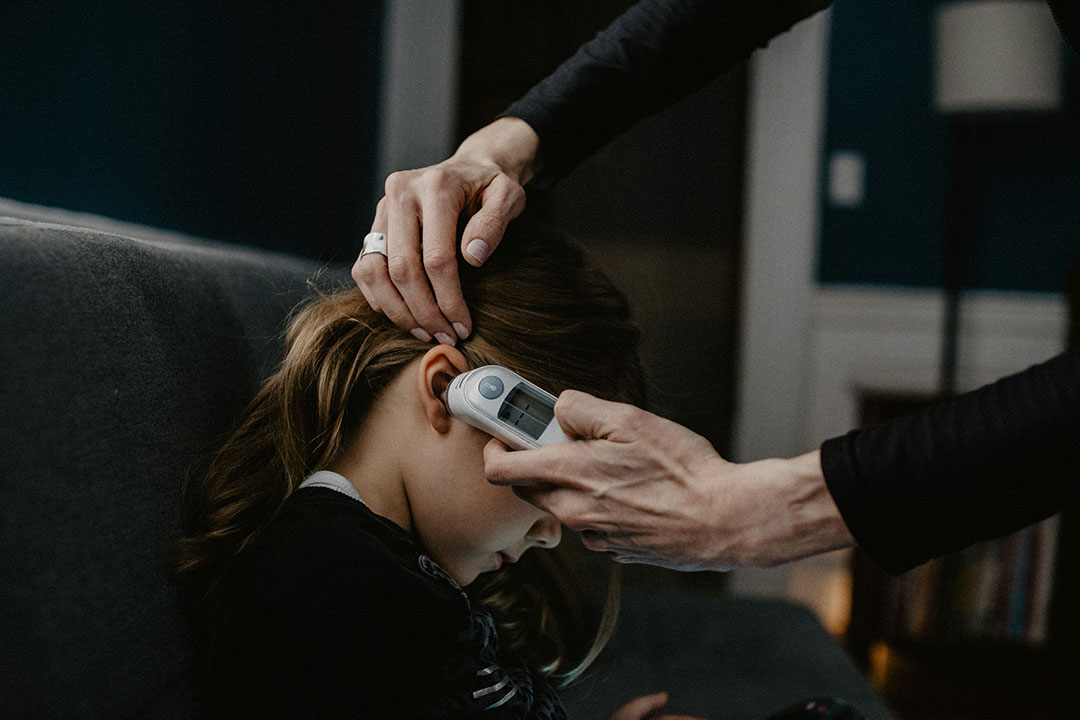Uganda: Taking vaccines to the people
The country is on a major vaccination drive to ensure that people are protected and the economy can recover.
- 4 January 2022
- 5 min read
- by Dicta Asiimwe
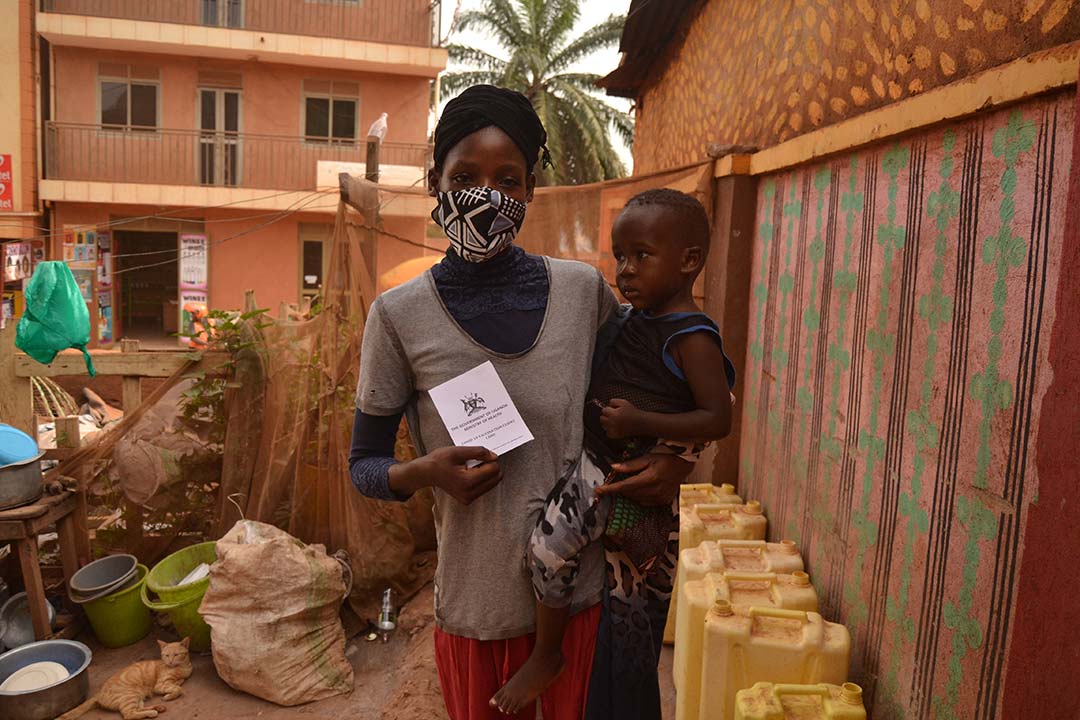
Rita Awino is one of only two women in the makeshift COVID-19 vaccination centre at the You and I Foundation in Kyebando, a shantytown on the outskirts of Kampala, Uganda.
Mostly, it is male motorcycle taxi riders in their bright orange reflector jackets who have been streaming in and out of the centre set up in Kyebando, as the country aims to increase the number of vaccinated people. This is critical so the economy can fully reopen in 2022: it has operated below full capacity since March 2020, when the first lockdown was announced to control the spread of COVID-19.
With the promised full reopening in 2022 and enough vaccines in people’s arms, it is believed things can finally return to normal for those in the motorcycle business and the economy as a whole.
After receiving her first Pfizer jab, Awino waits for the village health team member to complete her vaccination card so that she can go home with her son, who is at the back of the hall playing with a bicycle. The bicycle was left at the centre by the foundation, which provides training for out-of-school girls and women in Kyebando to make crafts for sale.

Just like many training institutions in Uganda, the You and I Foundation – originally set up to support disadvantaged children – closed and hasn’t opened its doors to students for close to two years now.
The long wait for the vaccine
Awino says that she is glad she has finally received her first jab after waiting for so long.
“We meet so many people, so getting the jab will protect me,” says Awino, a single mum whose main job is to sweep the streets of Kampala, although she hasn’t been paid in four months. To feed herself and her son, she goes around people’s homes and businesses offering casual labour and doing laundry.
Explaining why she has waited for so long, Awino says, “I had been told that, for one to be vaccinated, a national identity card was required, which I don’t have. But, through announcements from the microphone put outside the centre to invite passers-by for vaccination, I found out the jab was available for people without a national identity card.”
She adds, “It helps that the centre is near my Kyebando home. I didn’t have to spend money I don’t have on transport and childcare to travel the five kilometres to the nearest health centre with vaccines.”
Have you read?
While Awino was worried about transport and childcare costs, long lines at health facilities offering COVID-19 vaccines have been the main issue for Tomson Turyatemba, one of the motorcycle taxi riders who has come for his vaccination.
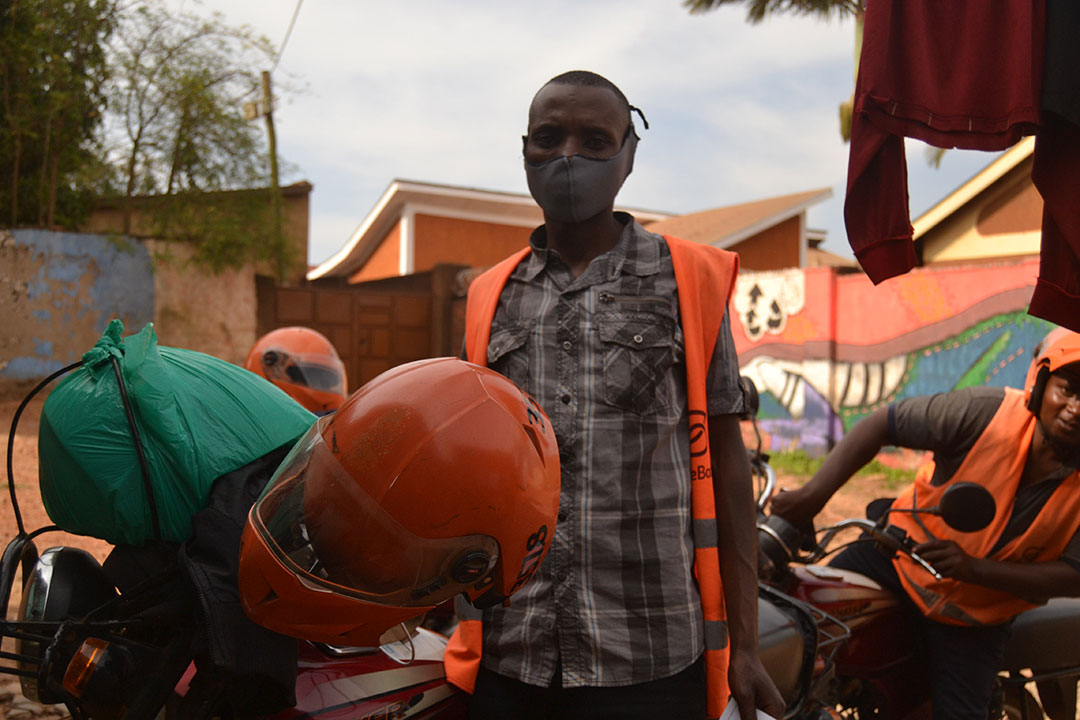
Turyatemba has been referred to You and I Foundation by SafeBoda, a company running a ride hailing application, as it has already closed its vaccination centre for the holidays.
SafeBoda has been working with others like the Ministry of Health, Uganda Red Cross Society, Kampala Capital City Authority (KCCA) and Uganda Breweries Limited (UBL) to take vaccination points out of health facilities to community areas such as bars, You and I Foundation and Bulange, the seat of the Buganda Kingdom, where more than 7,500 gathered to get their COVID-19 jabs over a two-day period.
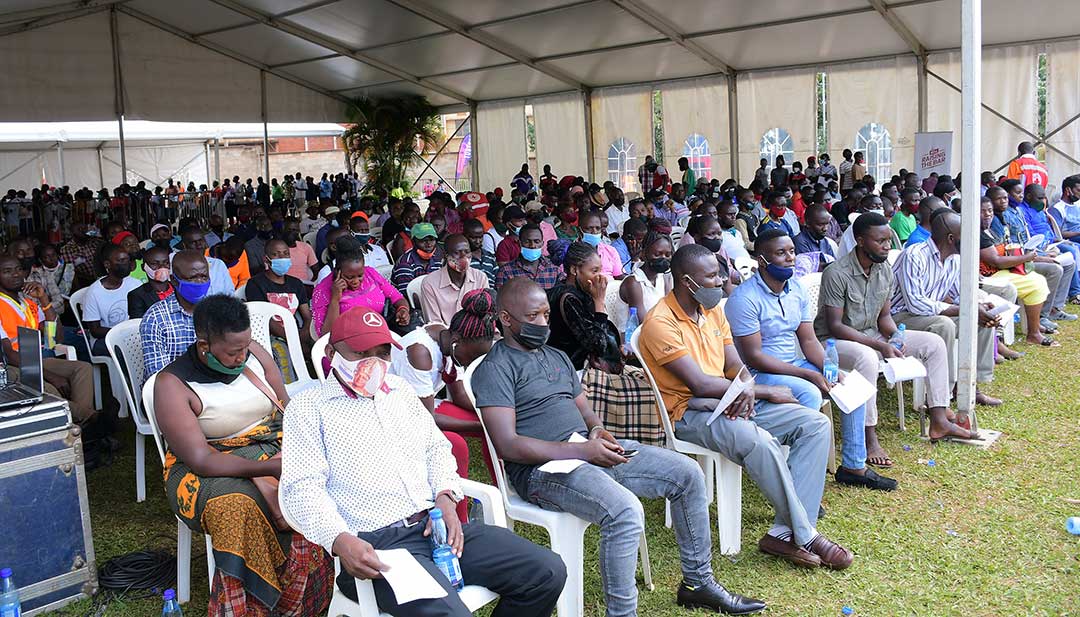
As a result of the different initiatives implemented to increase uptake, Uganda’s Ministry of Health has reported dispensing a total of 7.9 million vaccines as of 18 December 2021.
A damaged economy
Edgar Karamagi, the Public Relations Officer at SafeBoda, says that, as an organisation, they are happy to have worked with others on several drives to increase COVID-19 vaccine uptake, so that Uganda can reach the minimum threshold needed to open the economy.
“The transport industry has been badly affected by the prevailing curfew and it is our prayer to see the economy reopened,” he says.
Karamagi says that SafeBoda, just like the riders they work with, have suffered significant loss and the belief is that if more people take the vaccine, things can start to return to normal.
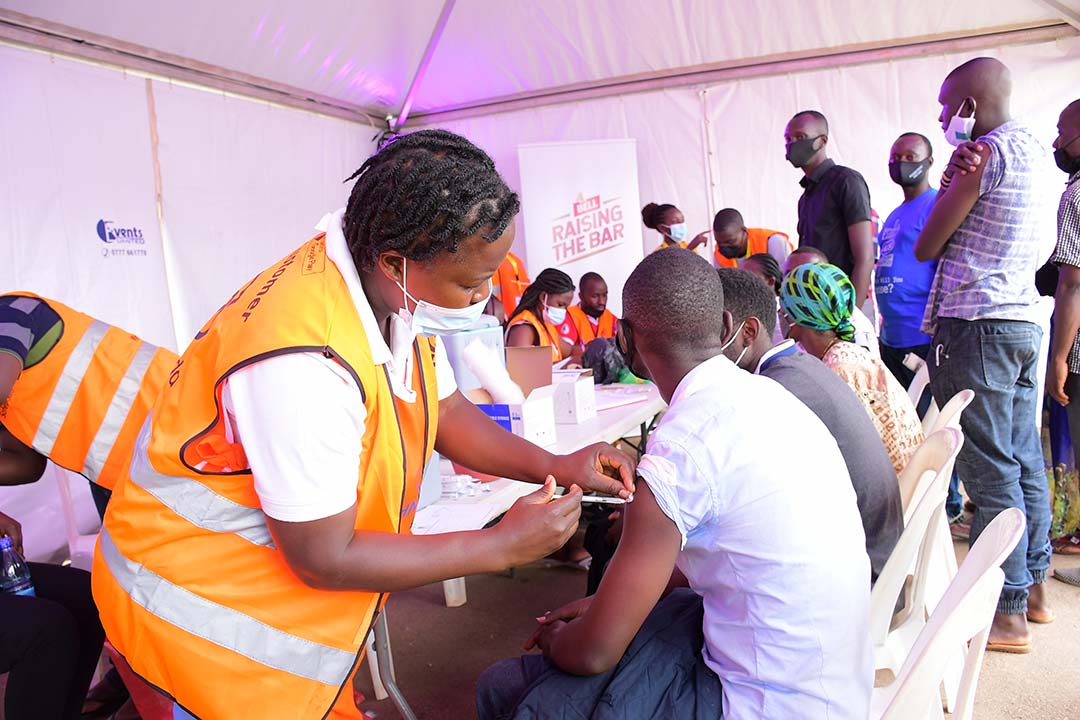
“Our riders have lost a considerable share of income and this is strenuous for us. The income of riders has about halved as a result of COVID-19 related restrictions, from a median of about USh80,000 ($22) to the current USh40,000 ($11.2),” says Karamagi.
The motorcycle taxi business was first closed at the end of March 2020, when lockdown was first announced. Since then, the motorcycle taxi sector hasn’t functioned fully, as a dusk-to-dawn curfew has remained in place for close to two years now.
While the motorcycle taxi business has fared better than businesses like bars that have been closed for two years, the working environment has been difficult for riders and those they work with.
The curfew has also cost some riders their motorcycles. The Uganda police announced last week, plans to auction over 500 motorcycles impounded for operating past curfew hours.
With the promised full reopening in 2022 and enough vaccines in people’s arms, it is believed things can finally return to normal for those in the motorcycle business and the economy as a whole.
